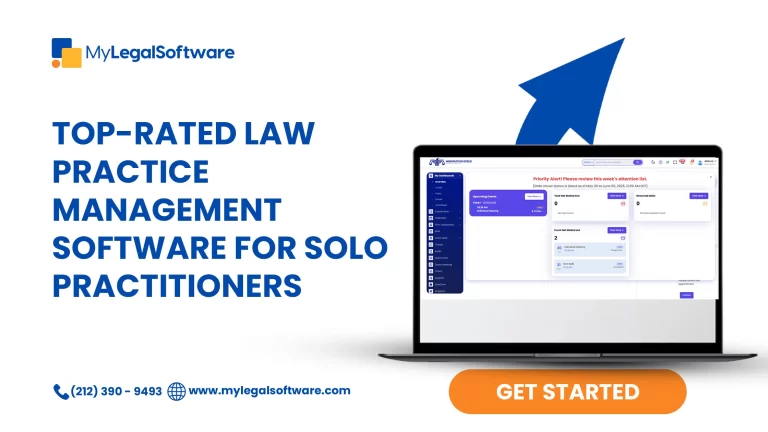In the past, a lawyer’s life often revolved around stacks of paperwork, hours of research in the office, and juggling a million different tasks. Nowadays, lawyers are increasingly turning to their smartphones and tablets to help streamline their practice. With the rise of mobile technology, lawyers are finding new ways to stay organized, communicate with clients, and manage their cases from virtually anywhere.
In this blog, we’ll explore how mobile apps for lawyers are transforming the legal profession. From remote access apps to practice management apps, these tools are reshaping how legal professionals work. Let’s dive into the trends, tools, and apps that are making the lives of lawyers a lot easier—and a lot more mobile.
Why Lawyers Are Embracing Mobile Apps
The legal field’s time-consuming, rigid workflow has prompted lawyers to adapt their methods as technology has evolved. Clients expect faster responses, prompting lawyers to seek ways to meet those demands without being tied to a desk. That’s where mobile apps come in.
One of the biggest reasons lawyers are adopting mobile technology is the ability to access information from anywhere. Whether it’s a client document, case file, or email, remote access apps are making it possible for lawyers to keep up with their workload even when they’re on the move. Lawyers no longer need to be tied to their offices to get things done, which has greatly improved both flexibility and efficiency.
Mobile Technology Trends in the Legal Field
As mobile technology continues to evolve, lawyers are seeing some pretty exciting trends that are changing the way they operate.
Cloud-Based Solutions
Cloud-based storage has become one of the most popular mobile technology trends in the legal field. Storing documents and case files in the cloud means they’re accessible anytime, anywhere—perfect for lawyers who need to work on the go. Cloud-based solutions like Dropbox or Google Drive allow you to store all your files in one place, making it easy to share and collaborate with colleagues or clients.
Artificial Intelligence (AI)
Believe it or not, AI is starting to make its mark in the legal world. AI-powered apps can help lawyers perform tasks like legal research, drafting documents, and reviewing contracts. These tools can save lawyers time by automating tedious tasks, giving them more time to focus on the aspects of their work that truly require human attention.
Client Communication Apps
Gone are the days of waiting for clients to call or email with questions. With client communication apps, lawyers can stay in touch with clients directly through messaging systems, secure file-sharing features, and even video calls. These apps help lawyers keep clients informed and build stronger, more efficient working relationships.
Data Security & Privacy
With so much sensitive information at their fingertips, lawyers must be extra cautious when it comes to data security. Fortunately, many mobile apps for lawyers come with built-in security features like end-to-end encryption and multi-factor authentication, ensuring that important documents remain safe and secure, even when accessing them remotely.
Remote Access Apps: Freedom to Work Anywhere
One of the biggest advantages of remote access apps is the ability to work from anywhere. Whether you’re in a courtroom, traveling for a meeting, or simply working from home, remote access apps make it easy to connect to your office and access case files, documents, and emails without being tethered to a desk.
Here are a few remote access apps that have become popular in the legal profession:
- LogMeIn: This app allows lawyers to access their office computers remotely. You can retrieve files, access email, and even run software applications, all from your mobile device. LogMeIn also allows for file transfers, making it a powerful tool for lawyers on the go.
- TeamViewer: Another great tool for remote access, TeamViewer allows lawyers to securely access their computers from anywhere and collaborate with colleagues in real time. It’s known for its user-friendly interface and robust security features.
- Splashtop: Splashtop is a fast and secure remote access app that allows lawyers to access their office computers and files. It’s perfect for firms with lawyers working from multiple locations, as it offers seamless access and secure file sharing.
The beauty of remote access apps is that they allow lawyers to get their work done, no matter where they are. No need to rush back to the office to grab a file—everything you need is at your fingertips.
Practice Management Apps: Organizing Your Legal Practice
Running a law firm requires a lot of organization. Managing cases, tracking billable hours, coordinating meetings—there’s a lot to keep up with. Practice management apps help lawyers stay on top of all of this and more.
These apps streamline the administrative aspects of running a law firm, making it easier for lawyers to stay organized and efficient.
Some of the best practice management apps include:
- Clio: Clio is one of the most popular practice management platforms for law firms. It offers everything from time tracking and billing to case management and document storage. Clio is cloud-based, so you can access your information from anywhere, making it ideal for lawyers who are constantly on the move.
- MyCase: MyCase offers a range of features that help lawyers manage their cases, clients, and documents in one place. You can communicate with clients directly through the app, schedule meetings, and even send invoices. It’s a comprehensive tool that can help law firms of all sizes stay organized.
- PracticePanther: Known for its user-friendly design and customizable features, PracticePanther is a great tool for lawyers who want to streamline their practice. It includes case management, billing, client communication tools, and much more.
Practice management apps are especially useful for solo practitioners or small firms, as they help keep everything organized in one place. With these apps, lawyers can manage everything from case files to client communication without juggling multiple systems.
Time-Tracking and Billing: Simplifying Your Financial Management
Tracking billable hours and sending invoices can be tedious for lawyers, but it doesn’t have to be. With mobile apps like Bill4Time or TimeSolv, lawyers can easily track their hours, generate invoices, and manage client payments—all from their mobile devices.
These apps can automatically calculate billable hours based on your time entries, making the process of invoicing much faster and more accurate. You can also send reminders to clients for overdue payments and keep track of your finances in real-time. Time-tracking and billing apps save you hours of administrative work and ensure you get paid for every hour.
Document Management and E-Signature Apps
For lawyers, managing documents is a huge part of the job. However traditional methods of storing, sharing, and signing documents can be time-consuming and inefficient. Document management apps and e-signature apps make it easy to organize and manage case files and sign documents digitally.
Here are some useful tools in this area:
- DocuSign: DocuSign is one of the most popular e-signature apps used by lawyers. It allows you to send, sign, and store legal documents securely, eliminating the need for in-person signings and reducing paperwork.
- Dropbox: Dropbox is a cloud-based storage solution that allows you to store and share files securely. Law firms widely use it for document storage and collaboration.
- Evernote: Many lawyers use Evernote to take notes, organize case details, and store research. This tool keeps everything in one place, ensuring that important information is easy to find when needed.
By using document management and e-signature apps, lawyers can reduce paperwork and increase efficiency while ensuring secure document access.
Conclusion
The future of law is mobile, and mobile apps for lawyers are helping legal professionals become more efficient, organized, and accessible. Mobile apps provide the tools you need to stay ahead, whether managing a case, working remotely, or communicating with clients.
At MyLegalSoftware.com, we understand the unique needs of lawyers and offer a range of features designed to help you streamline your practice. From practice management apps to time-tracking solutions, we’ve got everything you need to take your legal practice to the next level.
Don’t get left behind in the world of legal tech—embrace the future of law with MyLegalSoftware.com today!
Want to learn about the features and benefits of case management software? Go here.
Frequently Asked Questions – Mobile Apps for Lawyers
- What are mobile apps for lawyers used for?
Mobile apps for lawyers help with managing case files, communicating with clients, tracking billable hours, and accessing documents remotely. These apps allow lawyers to stay organized and efficient, even when they’re away from the office.
- How can remote access apps benefit a law firm?
Remote access apps allow lawyers to securely connect to their office network from anywhere, so they can access files, share documents, and manage cases without being tied to a desk. This flexibility is essential for lawyers who work remotely or travel frequently.
- Are practice management apps secure?
Yes, most practice management apps are built with strong security features like encryption and multi-factor authentication. These tools ensure that sensitive client data remains safe, even when lawyers are working remotely.







